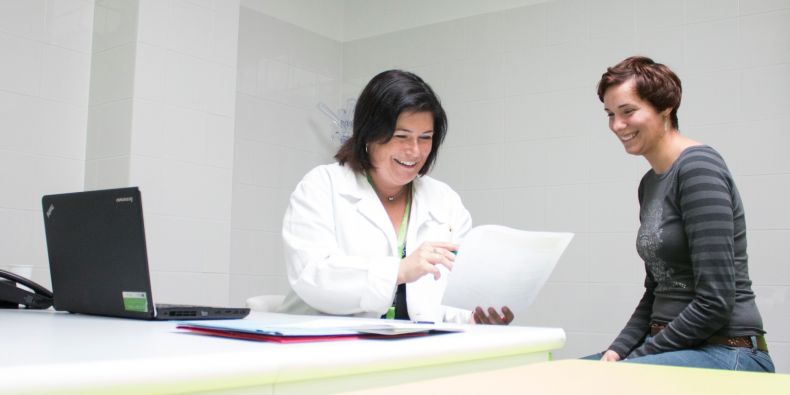Down syndrome is among the most common genetic disorders caused by an incorrect number of chromosomes. Standard tests performed between the first and the second trimester of pregnancy can result in false-positive results, causing many women to be worried about the health of their babies. Ceitec MU was recently accredited to offer a new and non-invasive test of three fetal genetic disorders to those who are interested.
Together with other facilities in Europe and the Czech Republic, the lab participated in validating the Clarigo test developed by a Belgian company. The Ceitec lab is one of the first in the Czech Republic to gain accreditation for its use.
“The test is performed on the mother’s blood and is able to detect almost one hundred percent of fetuses with Down syndrome. Its results are therefore comparable to the invasive test, which requires collection of the amniotic fluid,” says Kateřina Staňo Kozubík, an expert from the Centre for Molecular Medicine at Ceitec MU.
The test is based on using the small amount of the fetus’s free DNA which is present in the mother’s blood. It looks for changes in the number of chromosomes 21, 18, and 13.
Normally, there should be two copies of each of these chromosomes. The occurrence of three copies – “trisomy” – results in one of three genetic disorders: Down syndrome (chromosome 21), Edwards syndrome (chromosome 18), and Patau syndrome (chromosome 13). “The same method can also be used to determine the gender of the fetus. It can be performed in very early stages of pregnancy,” says Kozubík about other uses of the test.
The test is performed using blood drawn from a vein in the usual amount and it takes about two weeks before the woman can learn the results. “Unfortunately, this test is currently not covered by health insurance,” she says, adding that the price is 12,500 crowns.
The Ceitec MU specialised lab mostly provides genomic analyses for research projects, but part of its capacity can now be used for selected sophisticated diagnostic methods that are offered to the public and to physicians.
Prenatal testing is not the only testing for which the genomic lab is accredited. Recently, it has also started to offer analysis of BRCA genes, mutations in which are present in hereditary forms of breast and ovarian cancer. “The BRCA1 and BRCA2 genetic mutations increase the life-long risk of developing these two types of cancer,” says Ivona Blaháková, another expert from the centre.
As it is now possible to perform these analyses using the high-performance sequencers in Ceitec MU labs, the waiting period for this test will become significantly shorter.
